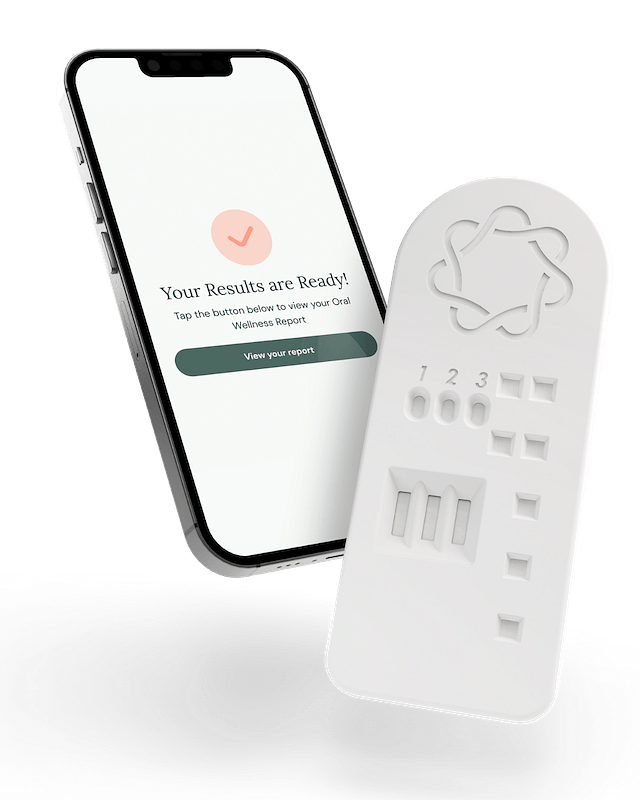Beyond supplements
and green juice
Take control of your wellness with
personalized data, backed by science.
Our test kits are currently only available through your healthcare provider.

It’s more than just
brushing and flossing™

Personalized and specific
Add your oral health data to your wellness stack.

Backed by science
Nanobead technology measures and analyzes key biomarkers.

Healthcare on your terms
No needles, no lab-work. Take charge of your oral healthcare routine.
What’s Included
Test Card
Saliva Collection Sponge
Dropper Vial
Color Calibration Card
App Access
Saliva Collection Sponge
Dropper Vial
Color Calibration Card
App Access
Decode your mouth™
In just 15 minutes, test and tap into your unique biomarkers to get a complete picture of your oral wellness.
Your mouth's pH level tells us about the acidity or alkalinity, which is crucial for dental health. A balanced pH is key to good oral hygiene.
Measures your saliva's ability to neutralize acids. It's important because a good buffering capacity is critical to maintaining a stable oral environment.
A key indicator of whether you are maintaining proper oral hygiene practices.
When we check for MMP-8 levels we are checking for signs that your oral care routine is focused on your gums. High levels of MMP-8 can indicate that you need to focus more on your gum hygiene to maintain a healthy balance.
Nitric oxide helps regulate the natural functions of saliva and can provide valuable information about your overall health.
Salivary glucose measurement involves analyzing the sugar levels present in your saliva, offering valuable insights into dietary patterns and overall well-being.
Salivary proteins are integral to maintaining a healthy oral environment, strong teeth, and healthy digestion.


Subscribe to our Newsletter